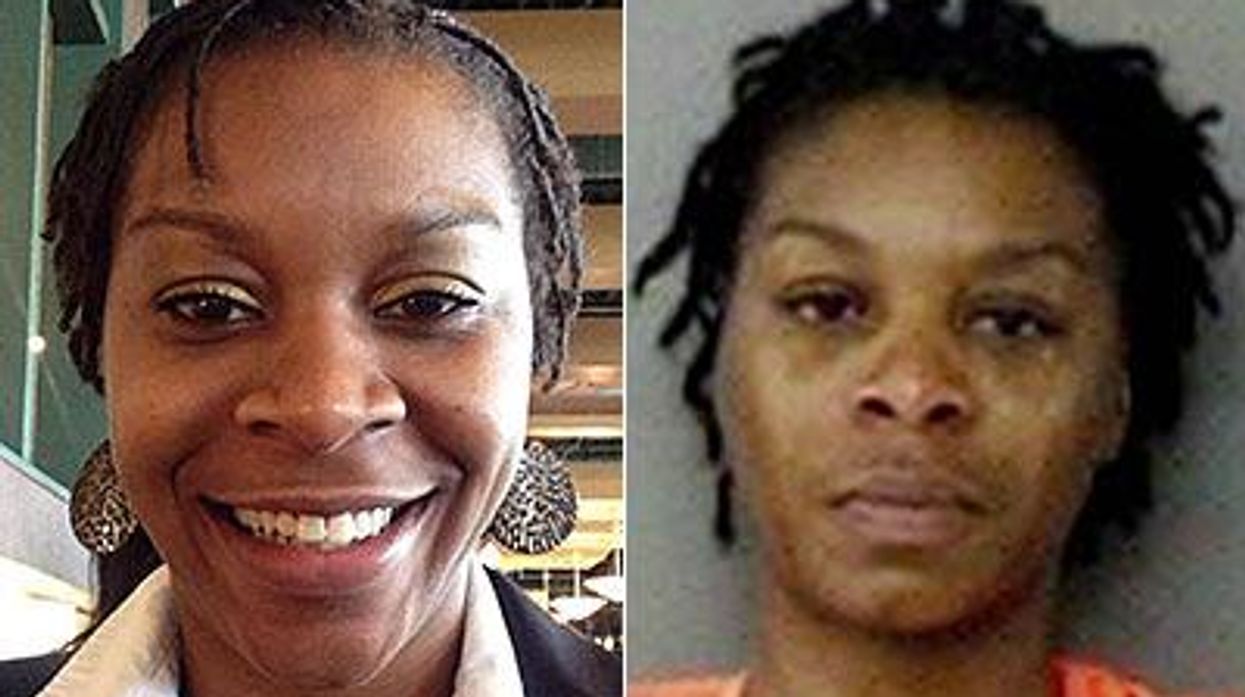Since August 2014, the world has been focused on police violence and its relationship to different demographics within black communities -- women, queer people, immigrants, disabled people, and more. While some demographics have received more attention and analysis than others -- namely, black men -- the fact remains that since Michael Brown was killed by Ferguson, Mo., police officer Darren Wilson, there has been more attention paid to the role that police and, more broadly, policing have played in our communities -- particularly low-income communities of color.
And yet, such a focus on police violence, particularly as it relates to queer, trans, and gender-nonconforming people, obscures the real tensions behind violence against said groups. Police violence is but one aspect of a larger spectrum of violence facing queer, trans, and gender-nonconforming people -- and if we don't understand it as such, we may miss critical opportunities to advance the needle on quality of life issues for all of us.
The recent coverage of the case of Sandra Bland and other black women who have died in their jail cells has rightfully raised (some) attention around the intersection of issues affecting queer and trans communities, but a simple parallel is not only not possible, it's not enough. As of July, there'd been 11 (reported) murders of trans women this year, yet none of those women were killed by the police. How do we explain this in the context of police violence?
First, there is policing going on -- but it doesn't necessarily take the form of uniforms, badges, and police cars. Gender policing, alongside patriarchy and economic disenfranchisement, is killing trans people and gender non-conforming people, some of whom but not all of whom are queer.
Here's what that looks like. On July 21, India Clarke, a 25-year old black trans woman, was shot and killed in Tampa, Fla. She wasn't killed by the police --instead, she was killed by an 18-year-old black cisgender (nontrans) man who may have been in an intimate relationship with her.
Sixty-six-year-old KC Haggard was stabbed to death in Fresno, Calif., July 23. Though KC pleaded for help from motorists passing by, her pleas were ignored and she later died of her wounds. KC wasn't killed by the police -- she was killed by the assailants who stabbed her and the onlookers who refused to provide her with assistance, likely because she was a transgender woman.
Queer people, same-gender-loving people, transgender people, and gender-nonconforming people have more than the police to worry about. We also have to worry about cis vigilantes and people whom we may be in intimate relationships with enacting violence against us.
What we do know is that heteronormativity is deadly when it comes to queer, trans, and gender-nonconforming people being able to live dignified lives. For those scratching their heads, heteronormativity is a term coined originally by theorist Michael Warner to describe the attitude that heterosexuality is the only natural and normal expression of sexuality, and therefore inappropriately aligns one's biological sex with one's sexuality, gender identity and gender roles.
Heteronormativity fuels violence of all sorts, especially when it intersects with race. Like in the case of the New Jersey Four, in which seven young black queer people defended themselves against a homophobic attacker, yet four were arrested and jailed for it. Or in the case of CeCe McDonald, a black transgender woman who defended herself against a racist and transphobic attacker and yet spent time in jail for it.
Of course, police violence impacts queer people, trans people, and gender-nonconforming people. According to a 2011 report, for example, transgender people are more likely to interact with the police because they are more likely the victims of violent crime. They are also more likely to come into contact with the police because they are more likely to be on the street -- due to homelessness or because they are unwelcome at home. That often forces trans people to participate in the underground economy, because they are also generally locked out of the formal economy. This makes transgender people more likely to experience harassment and arrest.
Forty-seven percent of black transgender and gender-nonconforming people report being sent to jail for any reason. In addition to that, the average life expectancy for black trans women is 35 years. Given that, we understand that the violence is both at the hands of the police and the violence of a heteronormative, patriarchal society at large that limits the life chances of trans and gender-nonconforming people. That violence can be found with intimate partners who are ashamed to be seen with trans people in public, those who are ashamed of being outed for loving or being sexual with a trans person. That violence can be found with harassment, not just by police, but by those who also operate under the assumption that biological sex is more important that the health and well-being of human beings.
 ALICIA GARZA is special projects director for the National Domestic Workers Alliance, which fights for labor protections for nannies, housekeepers, caregivers, and other domestic workers.
ALICIA GARZA is special projects director for the National Domestic Workers Alliance, which fights for labor protections for nannies, housekeepers, caregivers, and other domestic workers.


 ALICIA GARZA is special projects director for the National Domestic Workers Alliance, which fights for labor protections for nannies, housekeepers, caregivers, and other domestic workers.
ALICIA GARZA is special projects director for the National Domestic Workers Alliance, which fights for labor protections for nannies, housekeepers, caregivers, and other domestic workers.

































































Charlie Kirk DID say stoning gay people was the 'perfect law' — and these other heinous quotes